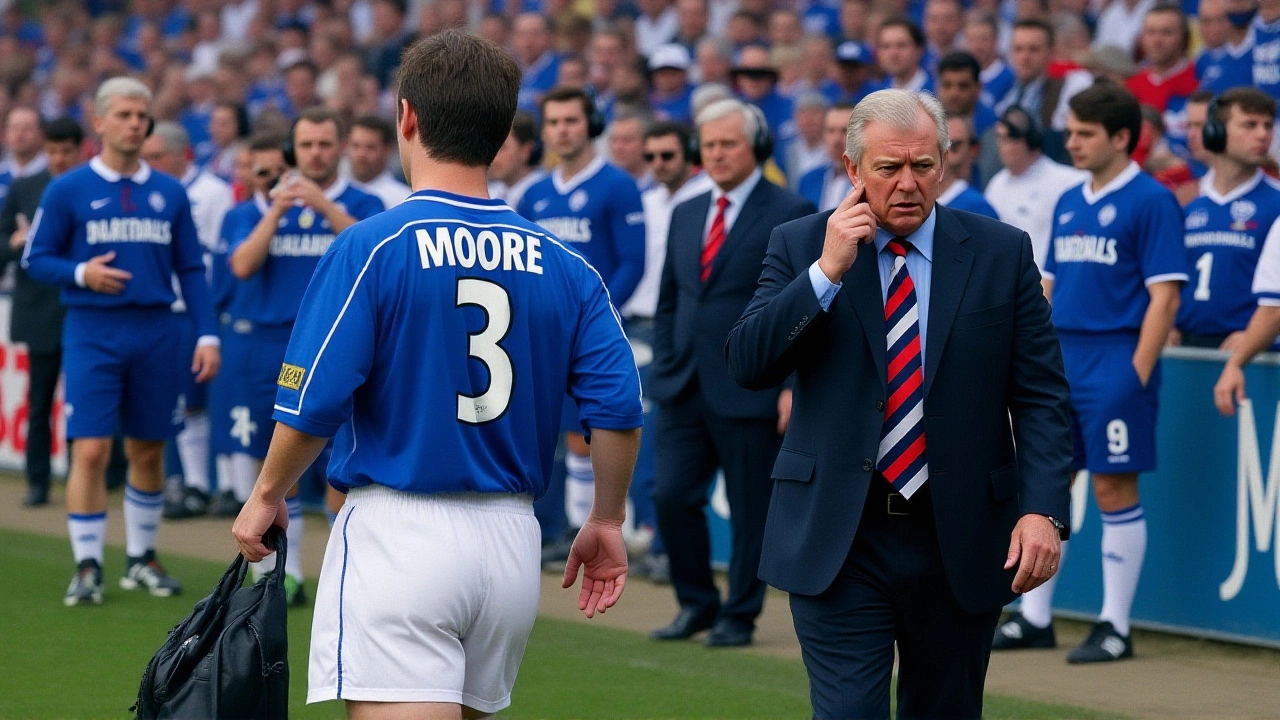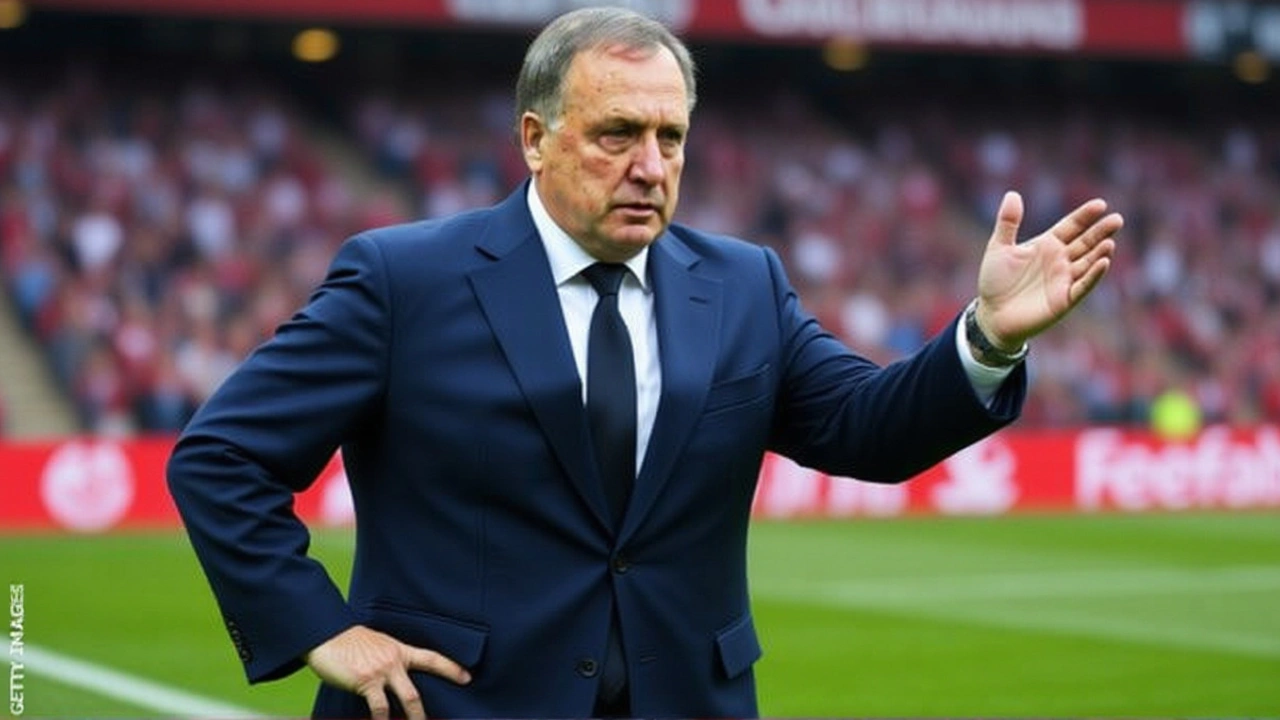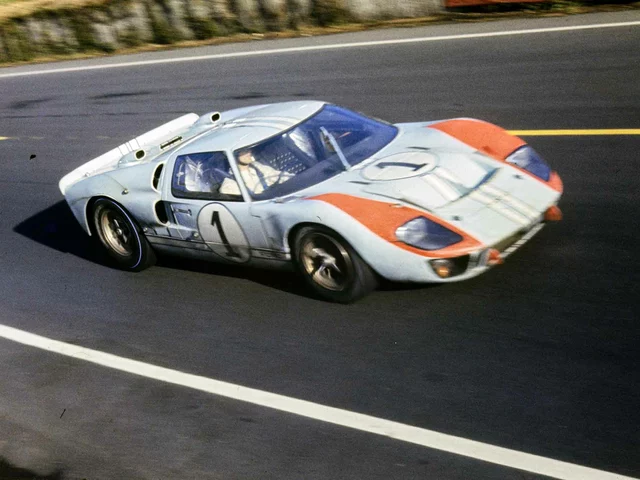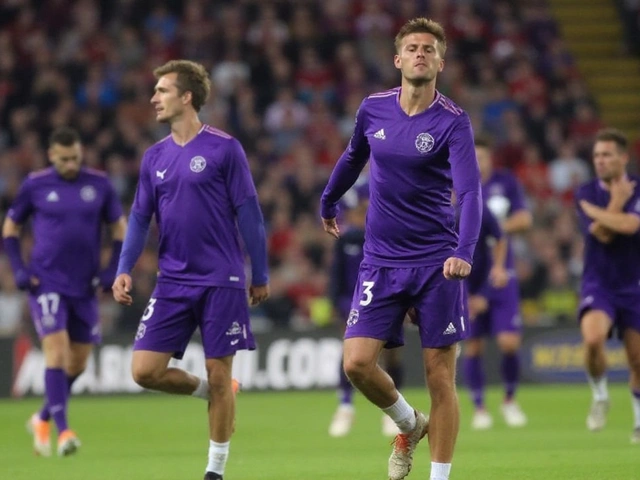At 76, Dick Advocaat isn’t hanging up his clipboard—he’s just changing his seat. Feyenoord Rotterdam announced this week that the Dutch football legend will return to the club in an advisory capacity, lending his decades of tactical wisdom to head coach Giovanni van Bronckhorst through the remainder of the 2023-2024 Eredivisie seasonRotterdam. It’s not a comeback. It’s a homecoming.
A Legacy Rekindled at De Kuip
Advocaat first walked into Feyenoord’s dressing room on October 30, 2019, replacing Jaap Stam amid a turbulent period. His debut match—a 3-0 thrashing of VVV-Venlo on November 3, 2019—set the tone. He didn’t just stabilize the team; he restored belief. By September 12, 2020, he made history: at 72 years and 351 days old, he became the oldest manager ever in the Eredivisie. That record still stands. The pandemic interrupted his second season, but he finished it with dignity, guiding Feyenoord through uncertainty with a calm that belied his age.When he left in 2021, it wasn’t a dramatic exit. Just a quiet handshake, a nod to the fans, and a promise to return—sometime. Now, that promise is fulfilled. Not as head coach. Not as the man in charge. But as the mentor in the corner of the dugout, the voice that remembers what it took to win the Dutch title in 2017, to navigate European nights at De Kuip, and to handle the weight of expectation in a city where football isn’t just a sport—it’s identity.
Van Bronckhorst’s Quiet Confidence
Giovanni van Bronckhorst knows this terrain better than most. He led Feyenoord from 2015 to 2021, winning the league in 2017, before heading to Rangers FC. He returned last June, stepping back into the same boots he once wore as a player. But this time, he’s older, wiser, and facing a different kind of pressure: keeping a club that’s been in the shadows of Ajax and PSV competitive in a rapidly evolving Dutch game.Advocaat’s presence isn’t about replacing ideas—it’s about reinforcing them. Van Bronckhorst, 49, has a modern philosophy: high pressing, fluid transitions, attacking fullbacks. Advocaat, the old-school tactician, brings structure, discipline, and a deep understanding of psychological resilience. They’re not opposites. They’re complements.
"He’s seen it all," one insider told me. "The good, the bad, the ugly. The death threats after Euro 2004. The rebuilding at Sunderland. The quiet nights in Utrecht when no one believed in him. He doesn’t need to shout. He just needs to be there. And Giovanni knows that."
More Than a Consultant
Advocaat’s career reads like a European football atlas: Sunderland AFC in 2015, FC Utrecht in 2018, stints in Russia, Turkey, South Korea, and three separate tenures with the Netherlands national team. His 2004 exit from the Dutch squad after a shocking loss to the Czech Republic—triggered by a controversial substitution that saw Paul Bosvelt replace Arjen Robben—still echoes in Dutch football circles. Death threats followed. He walked away. But he never stopped learning.His advisory role at Feyenoord isn’t ceremonial. It’s operational. He’s expected to review match footage, advise on set pieces, and offer candid feedback during training. He’s not signing contracts. He’s not attending press conferences. He’s just there—on the sidelines, in the locker room, quietly observing.
And that’s exactly what van Bronckhorst wanted.

Why This Matters
Feyenoord hasn’t won the Eredivisie since 2017. The club’s youth academy still produces talent, but the gap between them and Ajax’s machine is widening. The board isn’t panicking—but they’re acting. Bringing Advocaat back signals two things: first, that they value institutional memory over trendy hires. Second, that they believe experience still matters—even in an age of data-driven analytics and AI-powered scouting.It’s also a nod to the fans. At Rotterdam, loyalty isn’t measured in trophies alone. It’s measured in faces. Advocaat’s name still hangs on scarves. His voice still echoes in chants. His return isn’t just about tactics—it’s about emotion.
What’s Next?
The immediate goal is securing a top-three finish and navigating the Europa League knockout rounds. But the real test comes next summer. If Advocaat’s influence helps van Bronckhorst stabilize the squad and develop young players like Riechedly Bazoer and Ismael Saibari, this advisory role could become permanent. Or worse—for Ajax—become the blueprint for other clubs.Advocaat isn’t coaching to prove anything. He’s coaching because he still loves the game. And in a sport increasingly dominated by young, flashy managers, that quiet, relentless passion might be the most dangerous weapon of all.
Frequently Asked Questions
Why did Dick Advocaat come out of retirement for an advisory role?
Advocaat officially retired after the 2022-2023 season with ADO Den Haag but remained involved in football through national team consultancy. Feyenoord’s offer appealed to his deep ties to the club and his desire to mentor rather than manage. He’s not seeking headlines—he’s seeking impact, using his 50+ years of experience to help van Bronckhorst navigate pressure without the burden of full responsibility.
How does Advocaat’s past at Feyenoord compare to van Bronckhorst’s?
Advocaat’s tenure (2019–2021) was marked by tactical discipline and emotional stability during a pandemic-disrupted season. Van Bronckhorst’s first spell (2015–2021) was defined by attacking flair and a league title in 2017. Advocaat was the fixer; van Bronckhorst was the builder. Now, they’re combining both styles—structure meets creativity—to reassert Feyenoord’s dominance in the Eredivisie.
What’s the significance of Advocaat becoming the oldest Eredivisie coach?
When Advocaat coached Feyenoord on September 12, 2020, at 72 years and 351 days, he shattered the record for oldest manager in Dutch top-flight history. That record still stands today, symbolizing that age doesn’t equal obsolescence. His ability to adapt tactics, manage egos, and maintain authority at that age proves experience can outlast physical decline—something younger managers increasingly struggle to replicate.
Is this advisory role a stepping stone for Advocaat to return as head coach?
Feyenoord’s official statement says the arrangement is strictly for the remainder of the 2023-2024 season. No contract extensions are planned. But if van Bronckhorst struggles with injuries or form, and Advocaat’s input leads to a turnaround, the board may reconsider. For now, it’s a temporary bridge—not a ladder.
How have Feyenoord fans reacted to Advocaat’s return?
The reaction has been overwhelmingly positive. Social media buzzed with #AdvocaatBack memes and nostalgic clips of his 2020 press conferences. At last home match, a large banner read: "76 and still smarter than all of us." Many older fans see him as a link to the club’s proud past. Younger supporters, while less familiar with his legacy, respect his reputation. His return feels like a family reunion—not a corporate move.
Could this model be replicated by other Dutch clubs?
Absolutely. Clubs like PSV and Ajax have long relied on internal succession plans, but Feyenoord’s move is novel: hiring a retired legend not to coach, but to counsel. If it works, expect other clubs to bring back former icons—like Louis van Gaal or Ronald Koeman—in similar low-profile advisory roles. It’s a quiet revolution: valuing wisdom over youth, and legacy over trends.




